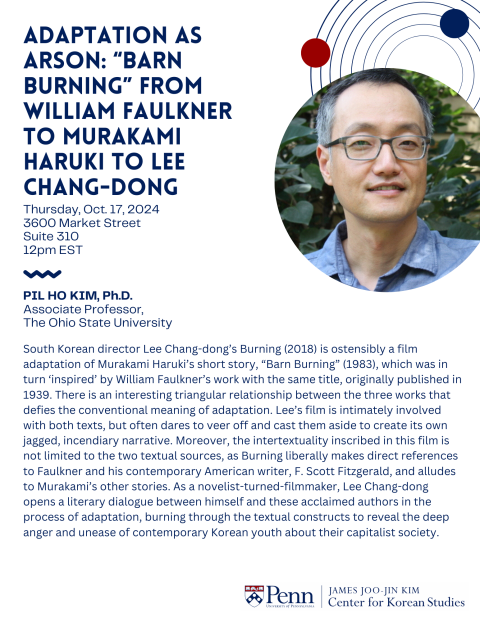
Korean Studies Colloquium
3600 Market Street
Suite 310
South Korean director Lee Chang-dong’s Burning (2018) is ostensibly a film adaptation of Murakami Haruki’s short story, “Barn Burning” (1983), which was in turn ‘inspired’ by William Faulkner’s work with the same title, originally published in 1939. There is an interesting triangular relationship between the three works that defies the conventional meaning of adaptation. Lee’s film is intimately involved with both texts, but often dares to veer off and cast them aside to create its own jagged, incendiary narrative. Moreover, the intertextuality inscribed in this film is not limited to the two textual sources, as Burning liberally makes direct references to Faulkner and his contemporary American writer, F. Scott Fitzgerald, and alludes to Murakami’s other stories. As a novelist-turned-filmmaker, Lee Chang-dong opens a literary dialogue between himself and these acclaimed authors in the process of adaptation, burning through the textual constructs to reveal the deep anger and unease of contemporary Korean youth about their capitalist society.
Bio: Pil Ho Kim is Associate Professor of Korean Studies at The Ohio State University. He is the author of Polarizing Dreams: Gangnam and Popular Culture in Globalizing Korea (University of Hawai’I Press, 2024). His next book project investigates the trans-Pacific cultural impact of Black freedom movements on modern Korean history.
 James Joo-Jin Kim Center for Korean Studies
James Joo-Jin Kim Center for Korean Studies